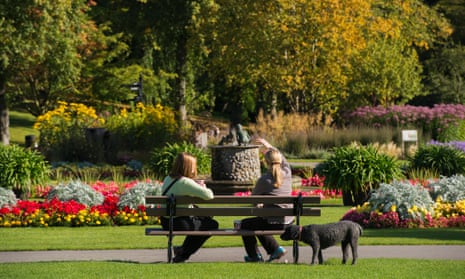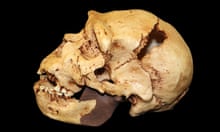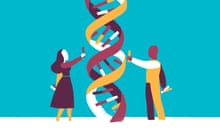A person’s love of nature is partially inherited, a large-scale study of twins has found.
Scientists from the National University of Singapore studied how much time twins spent in natural spaces compared with each other and found that they shared a similar level of desire to be in nature.
“The reason we decided to study this in twins is that we could estimate heritability based on the genetic similarities in identical twins (100%) versus genetic similarities in non-identical twins (50%),” said Chia-chen Chang, who led the study.
“If a trait, [such as the] desire to be in nature, is clearly more similar between identical twins than non-identical twins, this will then suggest a trait is heritable.”
She said that those who live in urban environments without access to nature could end up having a lesser appreciation of it, explaining: “We did not test this in our study but it is possible because previous studies have shown that spending time in nature is linked to increased love of nature.”
Using the TwinsUK registry, researchers surveyed 1,153 pairs of twins – identical and non-identical – about how they experienced nature. The twins were asked to rate their familiarity with and desire to be in nature, and how frequently they visit natural spaces such as public parks and private gardens.
The study, published in Plos Biology, found that identical (monozygotic) twins, who share almost 100% of their genes, were more similar to each other in their orientation towards nature and how frequently they visited nature compared with fraternal (dizygotic) twins, who share about 50% of their genetic material.
However, heritability declined with age, perhaps showing that environmental factors such as access to nature and green spaces bring about a love of the outdoors as one grows older.
While previous studies have found that spending time in natural spaces improves mental wellbeing, this varies from person to person. For the first time, the researchers say, this study has indicated why that is by suggesting there is likely to be a genetic component in our predispositions towards nature and our likelihood to visit natural spaces.
Though proximity to nature increases the likelihood of having an appreciation for it, those with a strong disposition towards enjoying nature may actively seek it out even if it means travelling.
The authors added that diverse urban planning is needed to provide access to natural spaces – and the benefits they offer – for all.
“Spending time in nature links to better health and wellbeing,” Chang added. “A twin study shows that a person’s desire to be in nature and how often they experience it are influenced by both genes and personal experiences.”
The TwinsUK database was set up by Prof Tim Spector from King’s College London in 1992 to investigate the incidence of osteoporosis and other rheumatic conditions in several hundred identical twins, but the group now includes more than 15,000 identical and non-identical twins from across the UK. Research has expanded to include many different conditions.









